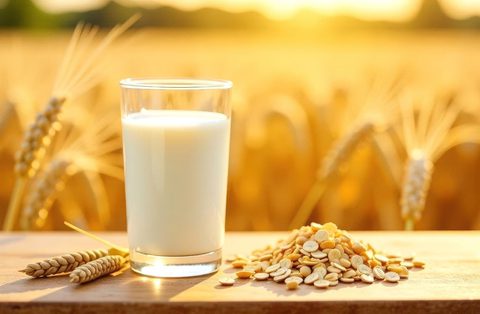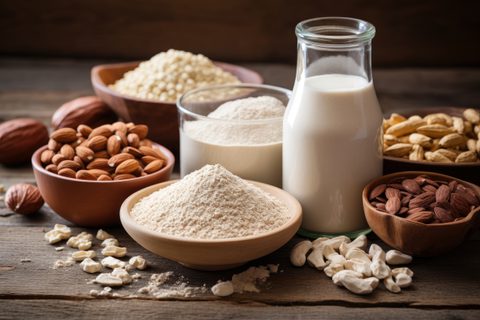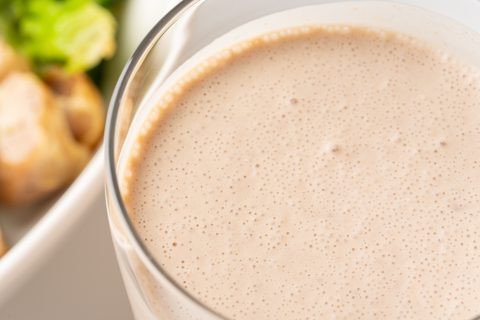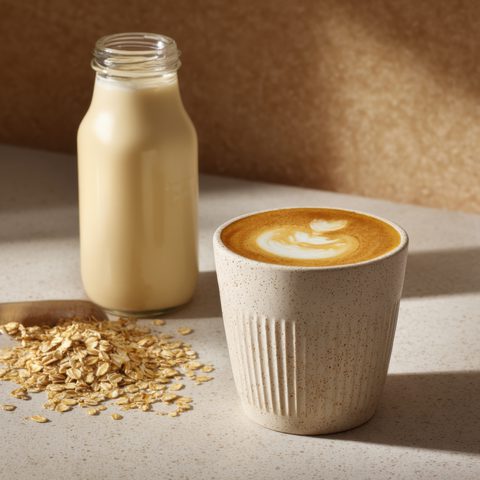

From Grain to Glass: Enzymes In Oat Milk Production
Plant-based milk is having a moment and oat milk is leading the charge. Once a niche product, it's now a fridge staple in cafés and kitchens across the UK. In fact, oat milk has recently overtaken almond and soy to become Britain’s favourite dairy alternative, prized for its smooth texture, mild flavour, and sustainability credentials.
But what most people don’t realise is that behind every velvety pour of oat milk is a little help from science specifically, enzymes.




Why Enzymes Matter
On the surface, oat milk seems simple: oats + water = milk, right? Not quite. Raw oats are loaded with starch, which tends to make the milk gloopy and overly thick not exactly what you want in your morning coffee. This is where enzymes come in as the quiet heroes of oat milk production.
The Magic of Amylase: Sweetness and Smoothness
The most important enzyme in the process is amylase, which acts like a molecular scalpel, chopping up long chains of starch into smaller, sugar-like fragments. This not only tames the naturally sticky texture of oat milk but also adds a gentle sweetness all without adding sugar.
The result? A light, drinkable milk that doesn’t overwhelm your coffee or porridge, and actually tastes good on its own.
Protease: The Creaminess Booster
Some producers go one step further, using protease enzymes to tweak the oat’s proteins. This improves the milk’s ability to hold together no watery separation or weird clumps and gives it a silkier, creamier mouthfeel. It’s a trick that helps oat milk mimic dairy in lattes, sauces, and smoothies alike.
Smarter, Faster, Greener
Thanks to modern enzyme blends, producers can now make oat milk more efficiently than ever. New technologies allow multiple steps like starch breakdown and flavour development to happen at once, saving both time and energy. That’s not just good for business; it’s good for the planet too.
What This Means for You
Whether you’re choosing oat milk for health reasons, environmental values, or just because it foams beautifully in a flat white, enzymes are making it better. They’re the reason oat milk today is smooth, stable, sweet and consistent - every single time.
So the next time you pour a splash into your cup, you’ll know
